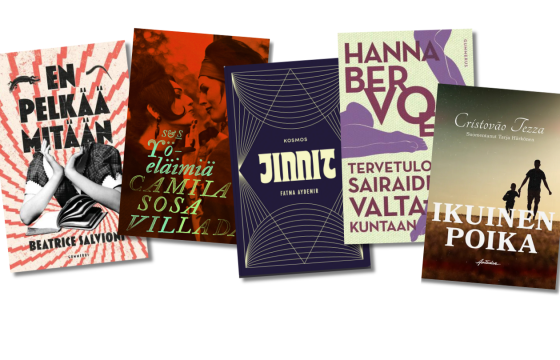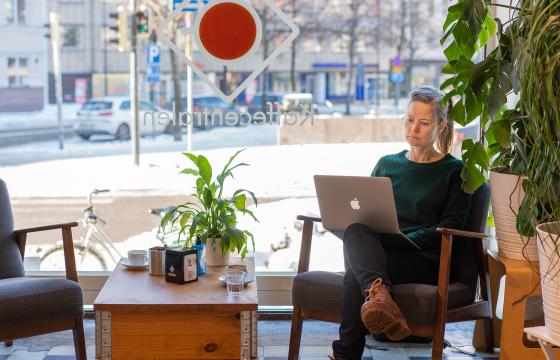Studies on Finnish attitudes and identities
Deep down, Finns are remarkably similar, regardless of their opinions on society. Many aspects unite rural middle-aged male workers and young urban female academics, as shown in a unique study on Finnish identities, performed by e2 and the Finnish Cultural Foundation. The study was based on the answers of more than 6 000 Finns.
Finns feel that increasing inequality is their foremost worry. Other factors perceived as dividing the people are continual disagreements within and outside politics, and immigration issues. Also, the motives of media and researchers are questioned. These themes came on top when more than 6,000 Finns were interviewed about which issues they think worry and divide the people.
Finnish identities surprisingly uniform (the first study on Finnish identities)
Family, friends, work and education form the basis of Finnish identities. All four were important to more than 80 percent, and merely a few percent of the respondents ignored the significance of all four.
Finns identify strongly with the municipality where they live, but they also esteem their Nordic and European identity. Local attachment does not contradict a cosmopolitan mind.
‒ The uniformness of Finnish identities is often obscured by heated public debate, researcher Ville Pitkänen assesses.
Social class means more to higher classes
There are, however, some interesting differences between population groups. Social class is significant only to slightly above than 40 percent, but it is more underlined in the highest classes.
– In the upper-middle and upper class, the majority thinks that social class is important for their identity. The significance of social class is lesser among those who identify themselves with the lower-middle or working class, researcher Ville Pitkänen notes.
There are similar differences regarding education. Those with an academic degree more clearly emphasize education as part of their identity.
Political stance emphasized among Left Alliance supporters
Parties, however, differ remarkably. For more than 60 percent of the Left Alliance supporters, the political stance is a very important or quite important part of their identity. For the National Coalition Party and the True Finns, the percentage is around 45 and in other parties below 40. At 29 percent, supporters of the Blue Reform party put the least emphasis on political views.
Only a minority of Finns, 35 percent, hold their political views as significant for their identity.
‒ For the Left Alliance, the political dimension of their supporters’ identity is a significant resource, Pitkänen assesses.
About half of those with very conservative or very liberal values emphasize that political views are an important part of their identity.
Two thirds put weight on their regional identity
Two out of three Finns identify themselves strongly with their immediate surroundings, the municipality and region where they live. The region is surprisingly important to the young, too. Among those under thirty, 62 percent feel that their current region of residence is important for their identity; the percentage is 71 for those above sixty.
When comparing political parties, regional identities are clearly the most important to supporters of the Centre Party.
‒ This is expressed particularly as an attachment to childhood environment and the area from where the family comes, researcher Ville Pitkänen specifies.
Green League and Left Alliance supporters stand out as global citizens who put the least weight on regional identity.
Regional identities strongest in Carelia, Savonia and South Ostrobothnia
The importance of regional identity clearly depends on the province. Residents in South and North Carelia, South Ostrobothnia, Ostrobothnia and Lapland give regional identity more than average significance. Päijänne Tavastia, on the other hand, is the most obvious example of a region with weak identity.
A firm regional identity is often linked to how people identify with the historical Finnish tribes. The study shows that in particular the Carelian, Savonian and South Ostrobothnian identities are very strongly felt. Over 70 percent of the South or North Carelians, the South or North Savonians and the South Ostrobothnians identify themselves with the tribe.
There also are several factors that unite the Finns, and population groups differ surprisingly little in many aspects. For example, patriotism is widely seen positively. These are findings of Same worries, different angles – A study of Finnish attitudes and identities, a new study done by e2 researchers Ville Pitkänen, Dr.(Soc.Sc.), and Jussi Westinen, Dr.(Soc.Sc.) and published by the Finnish Cultural Foundation and e2.
Patriotism unites, but inequality and temporary jobs worry (the second study on Finnish identities)
To 83 percent of Finns, patriotism is a positive rather than a negative treat. This also goes for more than 80 percent of those with a firm European identity. Patriotism is perceived as positive in all population groups regardless of e.g. attitudes to asylum seekers or foreigners in general.
– The heated debate around immigration and refugees has not alienated Finns from traditional patriotism, says Jussi Westinen.
Adversity to patriotism is most likely among supporters of the Green League (18 %) or the Left Alliance (29 %). However, the majority are positive to patriotism in these parties, too.
Beside patriotism, a spirit of national defence is a unifying factor; 83 percent see it as positive. This also goes for a clear majority (74 %) in the age group below 30.
Ethnicity does not define being a Finn
In the opinion of two thirds (63 %) of Finns, being a Finn is not a question of ethnical background. This view has the highest percentage among those with a strong European or cosmopolitan identity. Value conservatives and supporters of the True Finns are the ones most likely to emphasize the ethnical aspect of being Finnish.
The attitude to asylum seekers is more a divider of opinion. 32 percent of the citizens estimate that asylum seekers are in too good a position, whereas 43 percent hold the opposite view.
Media bias and researchers’ motives questioned
Citizens are critical to traditional media. Almost half of the respondents (47 %) feel that the media produce biased information, and more than half (57 %) feel that they exaggerate differences in opinion.
Motives of researchers are distrusted, too. A majority (57 %) thinks that many researchers are driven by private biased motives when addressing the public. Value conservatives and those with basic or vocational education are the most critical.
– It is interesting that almost every other highly educated, too, estimates that researchers’ public statements have political motives, researcher Ville Pitkänen notes.
Worry for temporary workers
As many as 84 percent of Finns estimate that temporary employees are in a weak position. Their situation is considered to be even weaker than the unemployed. On the other hand, the majority think that employees and entrepreneurs are both doing well.
– There is an interesting detail regarding views among supporters of different political parties: Supporters of the Finns party worry more for employees than the Social Democrats do, and more for entrepreneurs than National Coalition supporters do, Ville Pitkänen says.
No support for faster urbanization
In their attitude toward urbanization, Finns favour status quo to speeding up the process. Only 16 percent think that those in political power should accelerate urbanization.
– As expected, big city dwellers are the most urban-minded, but even among them, only 23 percent support faster urbanization, Jussi Westinen notes.
Although around 70 percent of Finns live within the boundaries of towns or cities, a majority (65 %) prefer to spend their time in nature rather than in an urban environment.
Both reports (in Finnish, summary in English) are downloadable at www.e2.fi
For more information, please contact
Mr. Ville Pitkänen, Dr.(Soc.Sc.), tel. +358 40 7770 869, firstname.lastname@e2.fi
Mr. Jussi Westinen, Dr.(Soc.Sc.), tel. +358 40 8335 799, firstname.lastname@e2.fi


